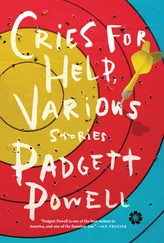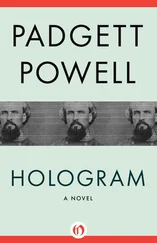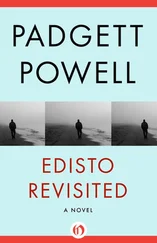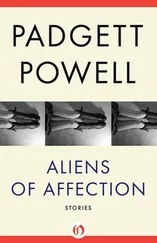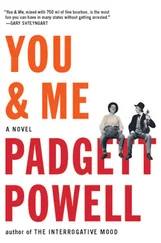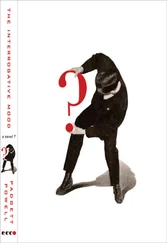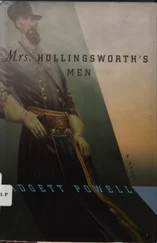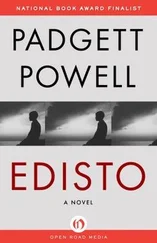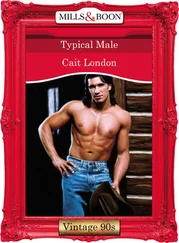He kindled up a small fire in the old stove and found a pan for Cicciolina’s dear bread. She felt, she smelled, so good it was incredible. Mario was salivating. He thought to surprise his wife with an even larger surprise than breakfast prepared by a respectable taxi driver. He put Cicciolina in the oven and, before going to the bedroom, tossed the Michelin guide to Italy in the firebox. Cicciolina could use the heat. When Mario served the tough bread to his wife she seemed not to notice. She seemed warmed by his gesture and ate the pizza smiling at him girlishly, as if, it seemed to him, he had been away for a long time and they were consequently a little new and exciting to each other, as they had been years before. His wife sat in bed eating the bread and deftly picking up crumbs from her bosom with a moist finger and looking at him when she put the crumbs in her mouth, and Mario sat looking seriously back at her, thinking, It is like I have been away somewhere.
DR. ORDINARY FOUND SOLACE in nothing. He found his shoes untied during surgery. He found his mother once, when she was in her sixties, naked in the bathtub calling for a fresh martini. He found bluebirds too far south. He found pies too sweet to eat. He found God with no difficulty, but locating his belief another matter.
He found it curious that he should have gone to medical school in the first place. He found a human head in the car trunk of his anatomy-class partner. He found, after his certain initial horror, that it was not the head of the cadaver he shared with his ghoulish roommate.
He found Tuesday the most trying day of the week, by far. He found a stray dog. He found a wallet full of cash. He found a lost child on the edge of a huge mall parking lot. He found it difficult to turn her in without coming under the suspicion of authority. He found telling them he was a doctor to be of no help.
He found beautiful — as beautiful as crystals and snowflakes and precious gems — the cysts and stones and lumps he took from human bodies. He found dry cleaning to be tantamount to not cleaning. He found he had no objection to staples in clothes, but he could not abide them in paper.
He found whiners offensive. He found a rare buffalo nickel in his pant cuff. He found blues-singers-in-Angola shows on TV totally absorbing. He found the behavior of mature people unpredictable. He found the doctrine of Christian charity at once commendable and absurd.
He found women close to tears at all times. He found old-fashioned foundation ads such as those in the Sears catalogue more titillating than modern-day pictures of nudes. He found relief in tension and none in release. He found certain sentimental poems, of the sort found on greeting cards, salacious. He found that if, as he gave a woman a physical examination of any intimate region, she spoke to him loudly, he was attracted to her strongly. He found impossible the notion of taking sexual advantage of a patient.
He found color-gradient charts at paint stores the most engaging art he had ever seen, and he had the world’s largest, if not only, collection of them. He found mules and other sterile hybrids, excepting sterile hybrid plants, most sympathetic. He found vegetarians everywhere.
He found Campbell’s soups odious in the extreme, more risky to consume than a Coke with a rat in the bottle. He found himself sometimes longing for the fine and light linen of yesteryear — white suits and handmade doilies. He found his relatives no more boring a lot than anyone else finds his. He found salvation in loss. He found cheer in the lugubrious carrying-on of patients who thought themselves incorrectly to be dying.
He found photographs of landscape pretentious. He found altar architecture rude. He found fresh-faced waitresses the most likely to spit in food about to be served. He found no difficulty, in principle, in pederasty, though he found no impulse for it in himself.
He found coloring with crayons an art form worthy of adults. He found fast cars on TV somehow more offensive than fast cars in person. He found reptiles of all forms pitiful. He found expensive tools harder to lose than cheap tools, to his surprise. He found telephone solicitation not so much annoying as vaguely rakish, if not prurient. He found pretty certain kinds of … of nothing.
He found himself a pallbearer at his own funeral, and the strongest of the six. He found himself less moved by his demise than anyone. He found, when touching the expensive, pointless, fake-brass coffin, that he had made the largest mistake of his life in allowing himself to be put in it. He found no solace in regret, but he regretted not willing himself, unembalmed, into a simple wooden box made not by a funereal concern but by a cabinetmaker. He found this sentiment repulsively common, but he found it to be true, deep, and his.
He found himself, once dead, able to relive his life with free editorial rein. He found the possibilities for revision endless. He found he had no interest in changing a thing. He found it easier to conceive of an alteration for the worse than one for the better. Dead, he found his clothes better fitting and longer wearing. He found this both reasonable, most reasonable, and odd.
GENERAL RANCIDITY RAN THE obstacle course and the whorehouse. He ran away from nothing. He ran to weight on furlough. He ran headlong into marriage. He ran aground once in a ten-foot dinghy in a foot of water, disposing himself toward a career in the infantry.
He ran religious seekers out of his unit, and out of the Army if he could. “Bullets and Jesus do not mix” ran his slogan on this policy. The devout consequently ran scared before him, scattering like small fish before the large pagan shadow that General Rancidity was.
He ran underground raffles for military contraband, profits running into the thousands. He ran the flag up on his base personally. He ran into a woman with a jeep. He carried her fireman-style to the infirmary. Of the expression “Still waters run deep,” General Rancidity said, “Blanks. Still water just sits there.” He was much more fond of the expression “Fell off a turnip truck.” He wanted no one accusing him of having fallen off a turnip truck. Consequently, he ran a tight ship.
He ran into difficulties, over time, with his friends — they ran off and left him. He was resigned to it: with familiarity, his turdy behavior around and his ungracious treatment of his friends increased until the general index of rancidity in his character exceeded the practical limits that people, even soldiers, were designed, or desired, to put up with. Only the truly rancid themselves could run with General Rancidity for long, and the truly rancid were rare.
One day General Rancidity, running late, ran low on gas and in fact ran out. No one would stop and pick him up. Thousands of lower-ranking men passed him on the roadside, running afoul of military as well as human protocol. General Rancidity’s blood ran more than hot.
He ran for a period toward the officers’ club, where he ran up a giant tab, to have a drink before initiating procedures to court-martial the entire base. Luck was running low, or high, depending upon your affection for General Rancidity: he was run over by the woman he had run into and carried fireman-style to the infirmary. She hit and ran.
General Rancidity’s obituary ran to less than twenty-five words, the result of a twenty-five-words-or-less contest run by his best surviving friends:
General Rancidity and the turnip truck he rode in on ran off the edge of the earth last Thursday, rancid turnips, rancid general, and all.
Spirits on base were running high, most high, and weather fair, and all schedules on time, and all probabilities true. Soldiers, and small schools of fish in the golf-course water hazards, ran over shoal and dale, rejoicing, relieved, relying on the base without General Rancidity to most happily, most trottingly, run itself.
Читать дальше

